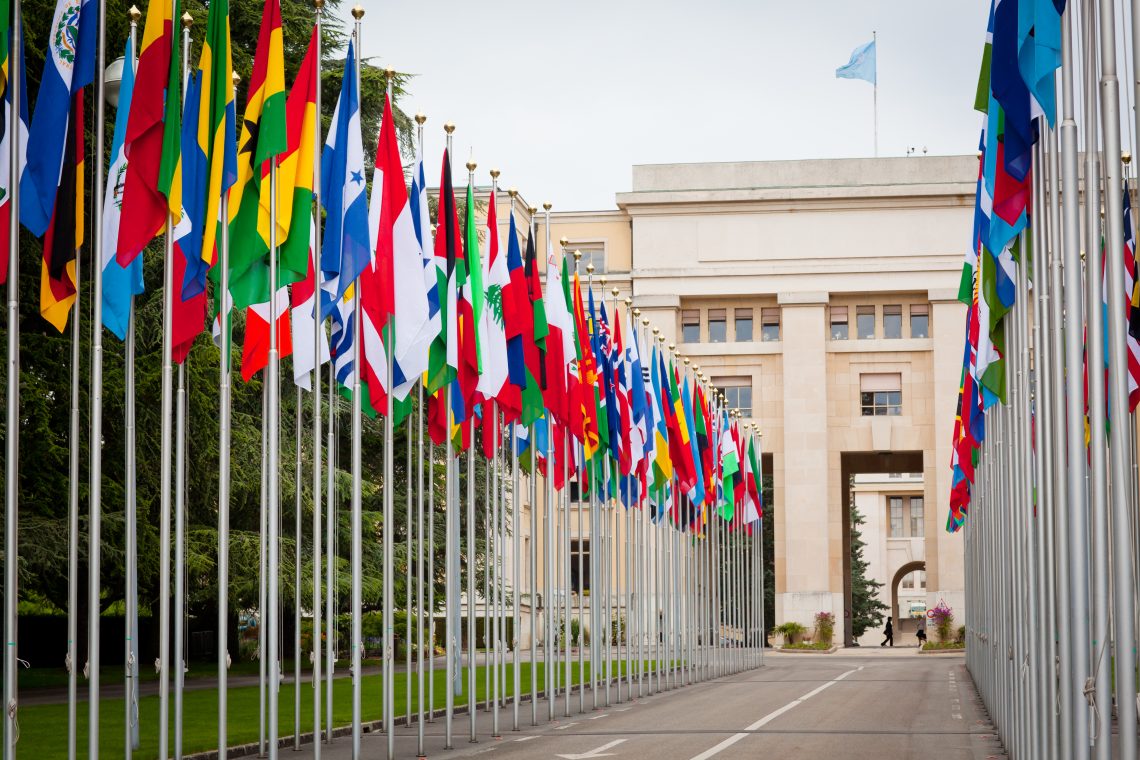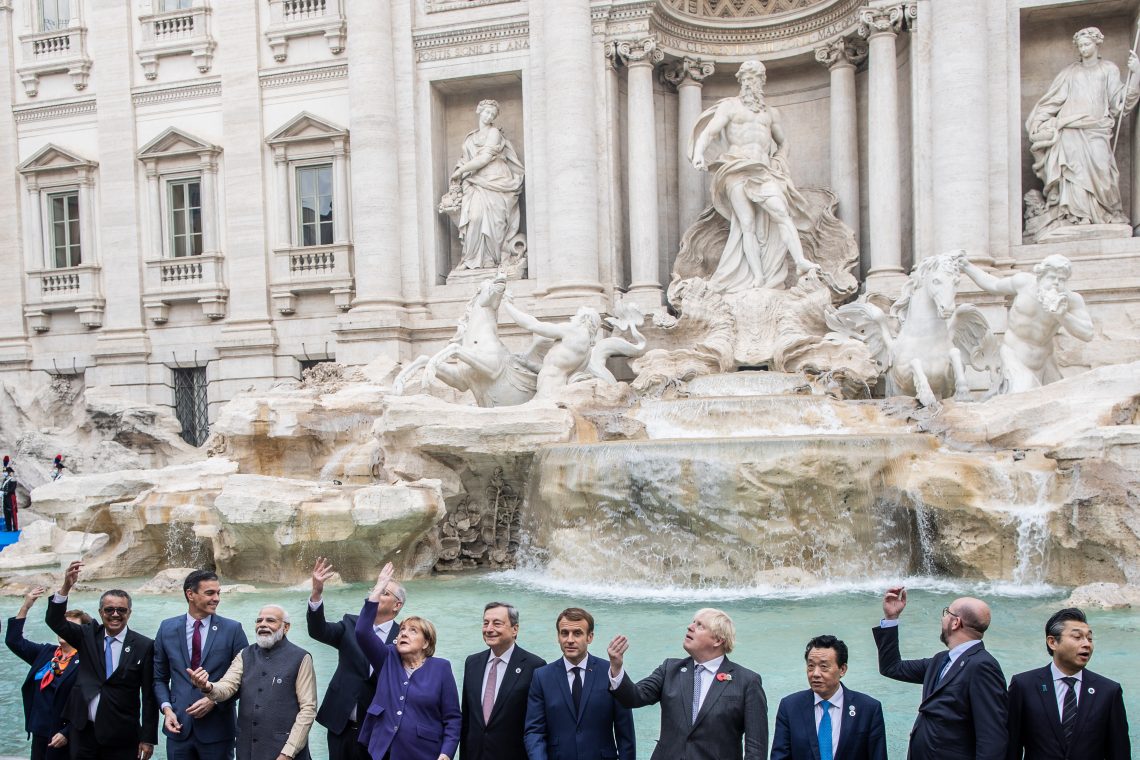The failures of multilateralism
After decades of integration and expansion, the limitations of large international organizations have been laid bare.

In a nutshell
- Multilateralism has not lived up to its ambitions
- Large organizations will be nearly impossible to reform
- States will opt for more pragmatic modes of cooperation
In a world struggling with new approaches to globalization and conflict resolution, what is the role of international organizations and multilateral bodies? This report is the second instalment of a two-part series on their effectiveness.
Multilateralism is in crisis. Power competition is increasing, globalization is slowing, and the West finds itself with no choice but to return to realism and realpolitik. The United Nations has repeatedly failed to maintain peace and security. The United Kingdom has left the European Union. Trade is becoming increasingly regional.
Such issues were predictable to a certain extent. More realistic and efficient multilateral frameworks would have contributed to mitigating the negative effects of disintegration and conflict.
From hyper-globalization to regionalization
Since 2008, and after decades of accelerated expansion, the global integration of trade, markets and finance has slowed down, with some suggesting that we are in a period of “slowbalization” or even “deglobalization.” Trade conflicts between China and the United States, Brexit and the effects of the Covid-19 pandemic on global value chains have exposed and accelerated these shifts.
Multilateral mechanisms, like the Doha Development Agenda of the World Trade Organization (WTO), have largely failed. Such letdowns reveal not only the WTO’s structural inefficiencies but also the unrealistic nature of its goals, which aim to control trade on a global scale and reach consensus among more than 160 states with different and sometimes irreconcilable interests.
Multilateral frameworks have not achieved their overambitious goals despite the continuous expansion of their bureaucratic structures.
These trends do not mean, however, that we are entering a period of isolationism or protectionism. Instead, recent events suggest that regionalization is increasing. In 2021, the African Continental Free Trade Area came into force, becoming the largest trade area in the world.
One year later the Regional Comprehensive Economic Partnership, a free trade agreement between 15 Asian-Pacific countries, came into force. The bloc accounts for around 30 percent of the world’s economic output and 28 percent of trade. Negotiations were started by Beijing to counter U.S. influence in the region. Washington had sought to reinforce its power there through the Trans-Pacific Partnership (TPP), which excluded China but ended up also withdrawing from the TPP in 2017.
Inefficiencies and contradictions
If any doubts remained, recent events have demonstrated that the idea of a single world, progressively united by common values, norms and purposes, was but a dream. The U.S. is no longer the only superpower shaping global norms. China and Russia have expanded their influence while openly defying the principles of the international liberal order, employing both soft and hard power mechanisms to promote their alternative political and economic models.
With few exceptions, albeit important ones such as NATO, multilateral frameworks have not achieved their overambitious goals despite the continuous expansion of their bureaucratic structures. On the African continent, there are multiple actors involved in security, political and economic policymaking, from peacekeeping forces to regional and subregional bodies and multilateral financial institutions. But this has not empowered Africans.
These failures do not mean that cooperation is not beneficial. However, they do show that multilateralism cannot replace sovereign states.

The UN is the most obvious example of the limitations and failures of multilateralism and the erosion of the post-World War II liberal international order. Despite its massive size (or because of it), the organization has been unable to deliver results in crucial matters and has become hostage to geopolitical competition and ideological struggles.
One possible explanation for this lies in a fundamental principle of politics: the one who has the ends must also have the means to pursue them.
While the U.S. is still the single largest financial contributor to the UN, the situation may soon change. Under President Donald Trump, the U.S. pulled funds from UN agencies including the Population Fund (because of its abortion policy) and the Relief and Works Agency, which the State Department described as an “irredeemably flawed operation,” and withdrew from the Human Rights Council. At the same time, China has been rapidly increasing its contribution, becoming the second-largest donor in 2019. One of the areas where Beijing, under the leadership of President Xi Jinping, has been increasing its footprint is peacekeeping, having become the top contributor within the UN Security Council. Beijing has also scaled up its diplomatic efforts to put Chinese nationals at the helm of several UN specialized agencies. As China’s role in the organization increases, the will to confront the Chinese regime decreases. This, of course, compromises core principles and goals of the UN on fundamental issues such as human rights.
The UN has been unable to adopt a firm and coherent approach in this area, resorting instead to empty formulations and double standards. The secretary general has mostly refrained from criticizing Beijing’s actions against the Uighurs. Between 2006 and 2016, Israel accumulated more condemnations in the UN General Assembly than the rest of the world combined, while Cuba, Iran and Venezuela were elected to the Human Rights Council.
Different actors, different strategies
Beijing has significantly increased its soft power and international standing through UN agencies. It has also used its seat on the Security Council to block the implementation of solutions for crises and back Moscow.
Paradoxically, the UN has become a stage where political regimes with irreconcilable world views compete for power and recognition, while adopting a vague postmodern discourse about the global “defining issues of our time.”
Recent events have further highlighted this impotence. The performance of the World Health Organization during the Covid-19 pandemic, and the ambiguity and lack of transparency of its investigation on the origins of the virus have exposed the limits of “global solutions to global problems.” The conflict in Ukraine, in turn, has exposed fault lines in European security that most multilateral actors had failed to acknowledge.
The current multilateral order will likely give way to skepticism regarding global governance.
Under the Trump administration, the U.S. tried to contain the growing influence of China by abandoning multilateral forums, withdrawing not only from the TPP and the UN Human Rights Council, but also the Paris climate convention and the Iran nuclear deal. These decisions reflect not only the imperatives of President Trump’s promise to “make America great again,” but also a fundamental belief that multilateralism is doomed to fail and cannot serve American interests.
Beijing, in turn, has been trying to change multilateralism from within – with significant success. Far from the isolationism of the post-World War II period, China has now become a key global player. At the same time, the foundations of the international liberal order have been gradually eroded by time and by the deep internal contradictions that emerged within liberal democracies.
President Biden, unlike his predecessor, has adopted a different strategy and declared that America is back, while trying to reposition Washington’s leadership through multilateral engagements. Despite his efforts, including the organization of a Summit for Democracy to counter the growing influence of authoritarian regimes, many ask whether it is not too late.
Scenarios
The most likely scenario for grand multilateral organizations is one of transformation. In the upcoming years, relations in the anarchic international system will be characterized by increasing competition, regionalization and, in some cases, fragmentation. The war in Ukraine has proved, in the most dramatic way, that it takes more than goodwill to sustain liberal principles. Meanwhile, Beijing has been following its global ambitions, combining both soft and hard power and – despite its rhetoric – privileging national interest over global concerns.
Grand multilateral organizations like the WTO and the UN are likely beyond reform. The latter can be expected to keep on struggling with inefficiencies, funding challenges and declining popularity.
Despite tragic failures such as Rwanda in 1994, the UN framework had some successes while the balance of power was stable. But that time is over, and Russia and China are openly calling for a “post-Western world order.”
Two events will be particularly relevant in shaping the future of multilateralism: the outcome of the war in Ukraine, and the future leadership in the U.S.
With the EU’s fragile security architecture and the return of a realist to the White House, the current multilateral order will likely give way to skepticism regarding global governance. The world will see more regional and strategic initiatives rather than idealistic alliances. Within the EU, ideological tensions between Brussels, Poland and Hungary will likely de-escalate.







